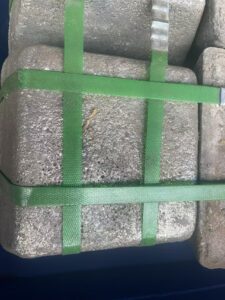If one had to go according to the general definition of a recession, which is two consecutive quarters of negative gross domestic product (GDP), then the United States has indeed entered a recession already. However, the National Bureau of Economic Research (NBER), private, nonpartisan organization facilitating investigation and analysis of major economic issues, defines a recession as “a significant decline in economic activity that is spread across the economy and that lasts more than a few months”. It could therefore be argued that the United States is not yet in a recession.
The recent debate about whether or not a recession is at hand is undoubtedly influenced by politics. Nuanced press conferences give no real clarity and public nervousness is palpable.
Regardless of the particular details, it is clear that economically speaking, the United States is troubled, and if the world’s greatest economy tumbles into an officially clear recession, it will take much of the world’s economy with it.

Ned Davis Research, an independent investment research firm known for its Global Recession Probability Model, recently released their publication in which they state that although evidence suggests we are in a ‘moderate global slowdown’, all indicators, including their own model and other leading indicators, signal that the risk of severe global recession has been rising for some time. They place the risk of global recession in 2023 at 98.1%.
Couple all of this uncertainty with the escalating tension regarding the Russia / Ukraine war and all of its dire consequences, it now becomes critical for businesses to manage their risk, and find stable, reliable partners and resources.
When it comes to Platinum Group Metals (PGMs), their prices and the market’s demand for them remain strong. Precious metals – Platinum, Palladium and Rhodium – are always needed despite economic downturn and the threat of global recession. Just their use in electronics, medical equipment and catalytic converters – including the important reduction of harmful gases in exhausts – deems them absolutely indispensable.
This bodes very well for Regenx Tech (TSX.V: RGX) (OTCQB:MWXRF), formerly known as Mineworx Technologies (TSX.V:MWX), the new and compelling company set to be the global leader in diesel catalytic converter recycling and precious metal extraction. The company is about to enter the market with its new commercial plant, following the successful completion of the testing phase of its pilot plant.
Regenx is the epitome of a stable, reliable partner providing precious metal resources. No reliance on unstable countries to provide the resources, and no reliance on unsustainable industries such as mining.
With its proprietary cleantech, innovative technology, the company is extracting platinum and palladium from spent diesel catalytic converters with an impressive >90% yield, and recently they announced a process breakthrough as they are now able to also successfully extract rhodium – the most expensive and one of the rarest precious metals on earth.
Every year, 85% of the world’s supply of palladium, 50% of the world’s supply of platinum and 80% of the world’s supply of rhodium are used for the development of diesel catalytic converters. The growth potential for the company is rather extraordinary.
As the company is based in Tennessee, United States, it gives Regenx an upper hand in that there are not many precious metal producers within the United States.
South Africa and Russia are the leading suppliers of Platinum, Palladium and Rhodium. This is by virtue of the fact that both these countries naturally have these resources in abundance, of course. Given South Africa’s general political, economic and social malaise, what with its electricity crisis, strikes, threat of land expropriation and ill-advised push for continual exclusionary racial policies, the country is unfortunately becoming less and less attractive for foreign business. Russia is not an option for the obvious reasons of sanctions and war.
Not only does Regenx offer both stability and scalability, and proven testing with their pilot plant, but they bring an environmentally sustainable and enormously profitable solution to a very real and growing problem – that of scrap pileup.
The average life-cycle of diesel catalytic converters is approximately 10 years. This means that more are constantly becoming available and end up becoming environmentally harmful waste. Traditionally, smelting was the only method used to extract precious metals, and this method comes with serious environmental concerns.
The automotive industry is not the only industry inadvertently supplying excess diesel converters. Within the industrial yellow iron industry, including such categories as heavy industrial construction equipment, every type of generator, marine equipment and stationary engines, all new non-road diesel engines sold since 2015 require catalytic converters, and the life-cycle of these is approximately only 3 years.
A third supply market is industrial facilities – the plants themselves. Industrial plants include manufacturing plants, oil and gas plants, chemical plants, power plants and such facilities. Any plant where a converter is used, is potential stock. Clearly, there is no shortage of stock, and indeed it is stock which will have not many other options but to become harmful waste.
That Regenx improves the environment by recycling this waste, and while doing so will make significant money, is an amazing, truly win-win situation. The company has begun the process of completing its first of four modules for their initial commercial plant with revenues commencing in 2023. This means that Regenx will be generating significant cash flow during a possible recession.
Regenx also has potential for scalability within the European market. The company previously owned a mine in Spain, their Cehegin Iron Ore asset, which the company subsequently sold in order to focus on its core cleantech recycling innovation. As such the company is familiar with doing business in Europe. This gives Regenx an advantage in its potential to grow their business from bases other than just the United States. All in all, Regenx is showing massive potential and exciting innovation.
The companies fortunate enough to be in industries which can remain profitable and successful during a time of constant threat of recession, will have to do so by having reliable, sustainable and innovative partners with the ability to be scalable.






